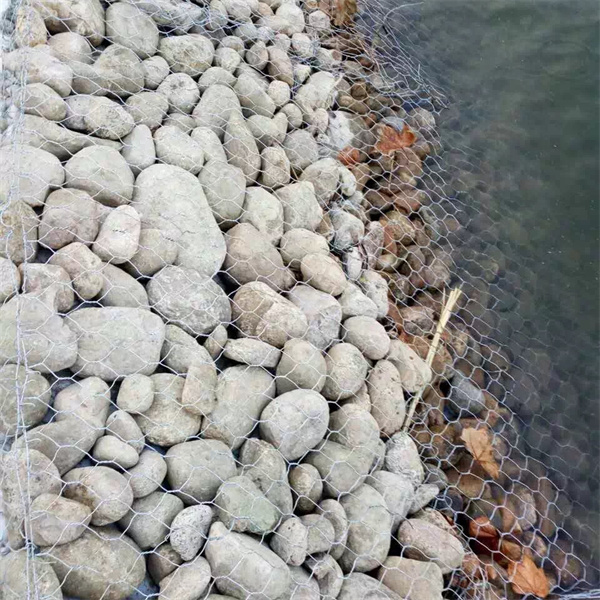ডিসে. . 09, 2024 18:40 Back to list
Gabion Wire Mesh Production Company for Quality Landscaping Solutions and Erosion Control
Understanding the Role of Gabion Netting Manufacturers
Gabion netting has gained significant prominence in recent years due to its versatility and durability in various applications, ranging from civil engineering to landscaping. The role of gabion netting manufacturers is crucial in providing high-quality products that meet the needs of different industries. This article aims to explore the features, benefits, and application areas of gabion netting, along with what to consider when selecting a manufacturer.
What is Gabion Netting?
Gabion netting refers to wire mesh structures that are used to create gabions, which are cages filled with rocks, concrete, or other materials. These structures serve various functions such as erosion control, slope stabilization, and even decorative landscaping. The netting acts as a container that keeps the fill material intact under pressure while allowing water to drain, preventing buildup that could lead to structural failures.
Features of Gabion Netting
Gabion netting is typically made from galvanized or PVC-coated steel wire, ensuring protection against corrosion and enhancing durability. The mesh size can vary depending on application requirements, but it is generally designed to withstand harsh environmental conditions, including extreme weather, soil movement, and hydraulic pressures.
One of the distinctive features of gabion netting is its flexibility. The structures can be molded into various shapes and sizes to fit different site conditions and aesthetic preferences. This adaptability makes gabion walls, for example, not only functional but also visually appealing, allowing for creative landscaping solutions.
Benefits of Gabion Netting
1. Environmental Sustainability Gabion structures often utilize local materials for filling, minimizing the carbon footprint involved in transport. Moreover, they blend harmoniously with the natural environment, promoting biodiversity.
2. Cost-Effective When compared to traditional concrete solutions, gabion walls can be more economical, especially in remote areas where transport costs can be high. The required materials are often abundant and can be sourced locally.
gabion netting manufacturer

4. Ease of Installation Gabion netting is relatively easy to install, which can significantly reduce labor costs and construction time. In many cases, minimal site preparation is required, allowing for quicker project turnaround.
Choosing a Gabion Netting Manufacturer
When selecting a gabion netting manufacturer, several factors should be considered to ensure quality and reliability.
- Reputation and Experience Look for manufacturers with a proven track record in producing high-quality gabion netting. Research customer reviews, case studies, and industry recognition.
- Material Quality Inquire about the types of materials used in their products. A reputable manufacturer should be able to provide certification of their materials, ensuring they meet industry standards for durability and corrosion resistance.
- Customization Options Different projects may have unique requirements. Manufacturers that offer customization, such as varying mesh sizes and coating options, can better meet your specific needs.
- Support and Expertise A manufacturer that provides technical support can be invaluable, especially for complex projects. Their expertise can help you navigate challenges and optimize the use of gabion netting in your application.
- Sustainability Practices As environmental concerns become increasingly important, choosing a manufacturer that prioritizes sustainable practices can add value to your project.
Conclusion
Gabion netting manufacturers play an essential role in providing solutions for erosion control, landscaping, and civil engineering projects. Their commitment to quality and innovation helps ensure the effectiveness and longevity of gabion structures in various applications. Understanding the features and benefits of gabion netting, alongside due diligence in selecting a manufacturer, can lead to successful and sustainable project outcomes.
-
Why PVC Coated Gabion Mattress Is the Best Solution for Long-Term Erosion Control
NewsMay.23,2025
-
Gabion Wire Mesh: The Reinforced Solution for Modern Construction and Landscape Design
NewsMay.23,2025
-
Gabion Wall: The Flexible, Seismic-Resistant Solution for Modern Landscaping and Construction
NewsMay.23,2025
-
Gabion Wall Solutions: The Durable, Decorative, and Affordable Choice for Every Landscape
NewsMay.23,2025
-
Gabion Basket: The Durable and Flexible Alternative to Traditional Retaining Walls
NewsMay.23,2025
-
Gabion Basket: The Proven Solution for Slope Stability and Flood Control
NewsMay.23,2025
-
Versatility of Chain Link Fence Gabion
NewsMay.13,2025






